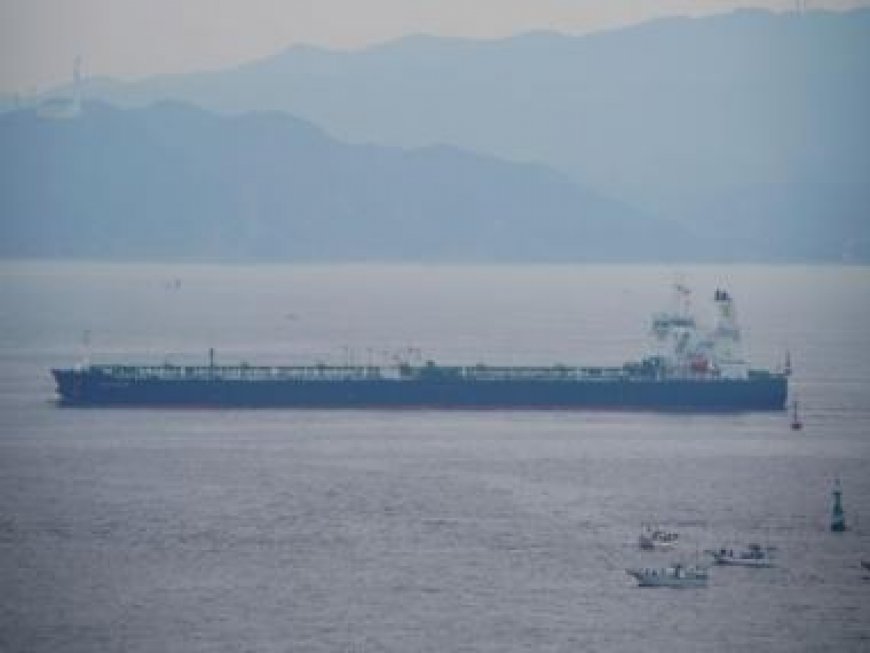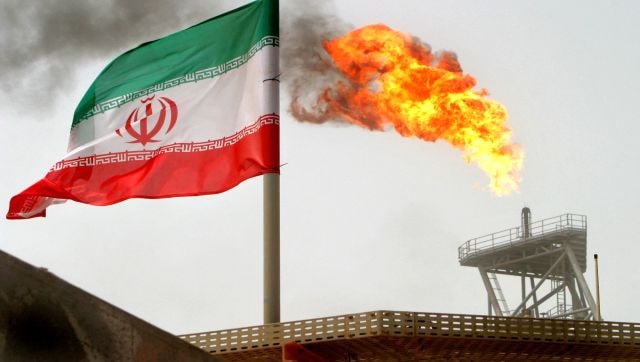Why did Iran seize an oil tanker off the coast of Oman? Will this lead to a bigger conflict?
Why did Iran seize an oil tanker off the coast of Oman? Will this lead to a bigger conflict?

The high seas have become the new place where conflicts are being fought. As the United States and the United Kingdom launch strikes at sites linked to Iran-backed Houthis, the Iranian navy has seized an oil tanker in the Gulf of Oman.
The US, unsurprisingly, has condemned the seizure of the tanker and called for the immediate release of the ship and its crew.
The latest incident raises concerns that Iran could threaten shipping in the Strait of Hormuz, the world’s most important oil chokepoint, and add to tensions about freedom of navigation owing to the repeated Houthi attacks on ships in the Red Sea.
We take a closer look at Iran’s seizure of the tanker and the impact of such a move.
Iran’s seizes Greek tanker
On Thursday (11 January), Iran boarded and seized a Greek-operated oil tanker, the St. Nikolas, off the coast of Oman. The tanker was travelling through the Strait of Hormuz on its way to Turkey when the UK Maritime Trade Operations (UKMTO) reported hearing “unknown voices” on board.
It was later confirmed by Iranian news agency IRNA that the navy had seized the ship.
According to British maritime security company Ambrey, the incident took place at 3.30 am GMT when several armed men boarded the ship around 50 nautical miles east of Sohar in Oman, and then headed towards Bandar-e-Jask in Iran.
The company managing the tanker, Empire Navigation, later said that it was loaded with 145,000 tonnes of crude oil and had 18 Filipinos and one Greek citizen as crew. “The vessel had loaded the previous days in Basra (in Iraq) a cargo of about 145,000 metric tonnes of crude oil destined for Aliağa (in Turkey), via the Suez Canal,” Empire added. The cargo belonged to Tüpraş, a Turkish oil group.
Retaliation for ‘theft’ of Iranian oil
But why did Iran seize a Greek-operated tanker? Tehran has claimed that the action was retaliation for America “stealing” Iranian oil.
The ship, previously known as the Suez Rajan, was at the centre of a Tehran-Washington dispute. In September 2023, the United States had said that it had seized the Suez Rajan and its cargo of 980,000 barrels of crude oil.
At the time, the US Department of Justice had said that the oil on board was allegedly being sold by Iran’s Islamic Revolutionary Guard Corps to China. And then sold the oil at an auction and profits were earmarked as compensation for American victims of terrorism.

US condemns Iran
Washington has called out Iran for the wrongful seizure of the tanker and called for the release of its crew.
“On 11 January, the Islamic Republic of Iran Navy (IRIN) unlawfully seized the Marshall Islands-flagged oil tanker St. Nikolas while the vessel was transiting the international waters of the Gulf of Oman en route to Aliaga, Turkey,” the US Naval Forces Central Command said in a statement.
“Iran’s actions are contrary to international law and threaten maritime security and stability,” said Vice Admiral Brad Cooper, the commander of US Naval Forces Central Command and Commander US 5th Fleet.
Also read: How Houthi attacks in the Red Sea could affect everyday life
Tensions in the high seas
Conflict has flared up on the high seas in recent times; there’s been a series of attacks in the Red Sea with Iran-backed Houthis targeting commercial vessels on the high-traffic trade route. The Houthis have said that they are carrying out their attacks in retaliation for Israel’s war in the Gaza Strip.
According to a Financial Times report, Houthi rebels in Yemen have launched more than 25 attacks on commercial shipping in the southern Red Sea since November, prompting threats of a military response by western powers.
“Seizing tankers is a go-to Iranian move to demonstrate their capabilities and to create problems,” Tobias Borck, senior research fellow at the Royal United Services Institute think-tank in London, told the Financial Times. “Iran is showing that [the Houthis] are part of a bigger [regional] problem. It adds another layer of complexity.”
Earlier on Wednesday, the Houthis fired their largest-ever barrage of drones and missiles targeting shipping in the Red Sea, resulting in the US and UK shooting down their projectiles. Fortunately there were no casualties.
The British firm Ambrey had said that the assault had taken place off the Yemeni port cities of Hodeida and Mokha. In the Hodeida attack, Ambrey said ships described over radio seeing missiles and drones, with US-allied warships in the area urging “vessels to proceed at maximum speed.”
Off Mokha, ships saw missiles fired, a drone in the air and small vessels trailing them, Ambrey said early Wednesday.
And in reaction, the US and the UK carried out retaliatory strikes on Friday (12 January) on an airbase, airports and a military camp, linked to the Houthis. US president Joe Biden called the strikes a “defensive action” and said he “will not hesitate” to order further military action if needed.
“Today, at my direction, US military forces – together with the United Kingdom and with support from Australia, Bahrain, Canada, and the Netherlands – successfully conducted strikes against a number of targets in Yemen used by Houthi rebels to endanger freedom of navigation in one of the world’s most vital waterways,” Biden said in a statement.
He called the strikes a “direct response” to “unprecedented” attacks by the Houthis, “including the use of anti-ship ballistic missiles for the first time in history”. “These attacks have endangered US personnel, civilian mariners, and our partners, jeopardised trade, and threatened freedom of navigation,” he said.
UK prime minister Rishi Sunak also made a statement following the strike, calling them “necessary and proportionate”. “Despite the repeated warnings from the international community, the Houthis have continued to carry out attacks in the Red Sea.
“We have therefore taken limited, necessary and proportionate action in self-defence, alongside the United States… to degrade Houthi military capabilities and protect global shipping,” he said.
With inputs from agencies
What's Your Reaction?



























































